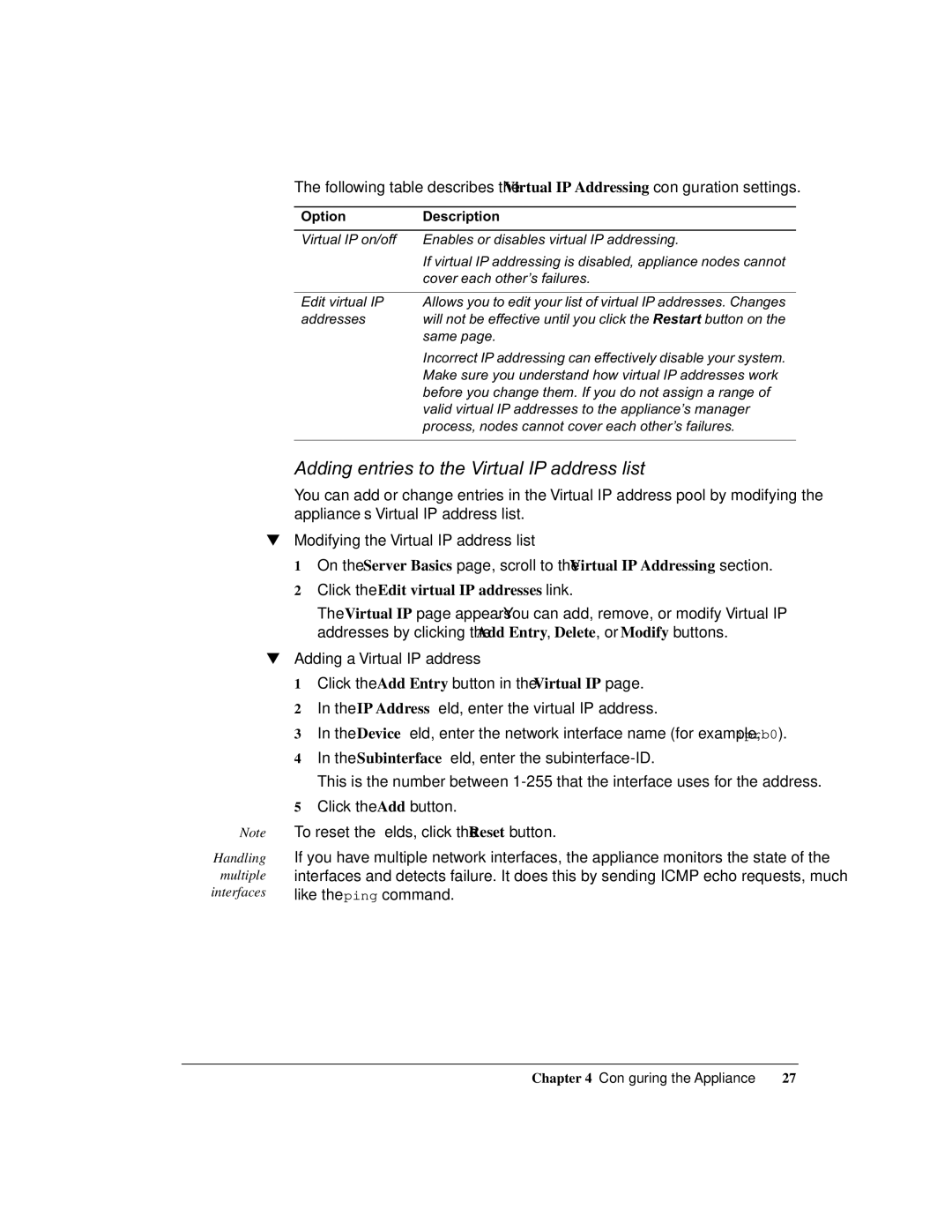
The following table describes the Virtual IP Addressing configuration settings.
Option | Description |
|
|
Virtual IP on/off | Enables or disables virtual IP addressing. |
| If virtual IP addressing is disabled, appliance nodes cannot |
| cover each other’s failures. |
|
|
Edit virtual IP | Allows you to edit your list of virtual IP addresses. Changes |
addresses | will not be effective until you click the Restart button on the |
| same page. |
| Incorrect IP addressing can effectively disable your system. |
| Make sure you understand how virtual IP addresses work |
| before you change them. If you do not assign a range of |
| valid virtual IP addresses to the appliance’s manager |
| process, nodes cannot cover each other’s failures. |
|
|
Adding entries to the Virtual IP address list
You can add or change entries in the Virtual IP address pool by modifying the appliance’s Virtual IP address list.
▼Modifying the Virtual IP address list
1 On the Server Basics page, scroll to the Virtual IP Addressing section.
2Click the Edit virtual IP addresses link.
The Virtual IP page appears. You can add, remove, or modify Virtual IP addresses by clicking the Add Entry, Delete, or Modify buttons.
▼Adding a Virtual IP address
1Click the Add Entry button in the Virtual IP page.
2In the IP Address field, enter the virtual IP address.
3In the Device field, enter the network interface name (for example, iprb0).
4In the Subinterface field, enter the
This is the number between
5Click the Add button.
Note | To reset the fields, click the Reset button. |
Handling | If you have multiple network interfaces, the appliance monitors the state of the |
multiple | interfaces and detects failure. It does this by sending ICMP echo requests, much |
interfaces | like the ping command. |
Chapter 4 Configuring the Appliance | 27 |
